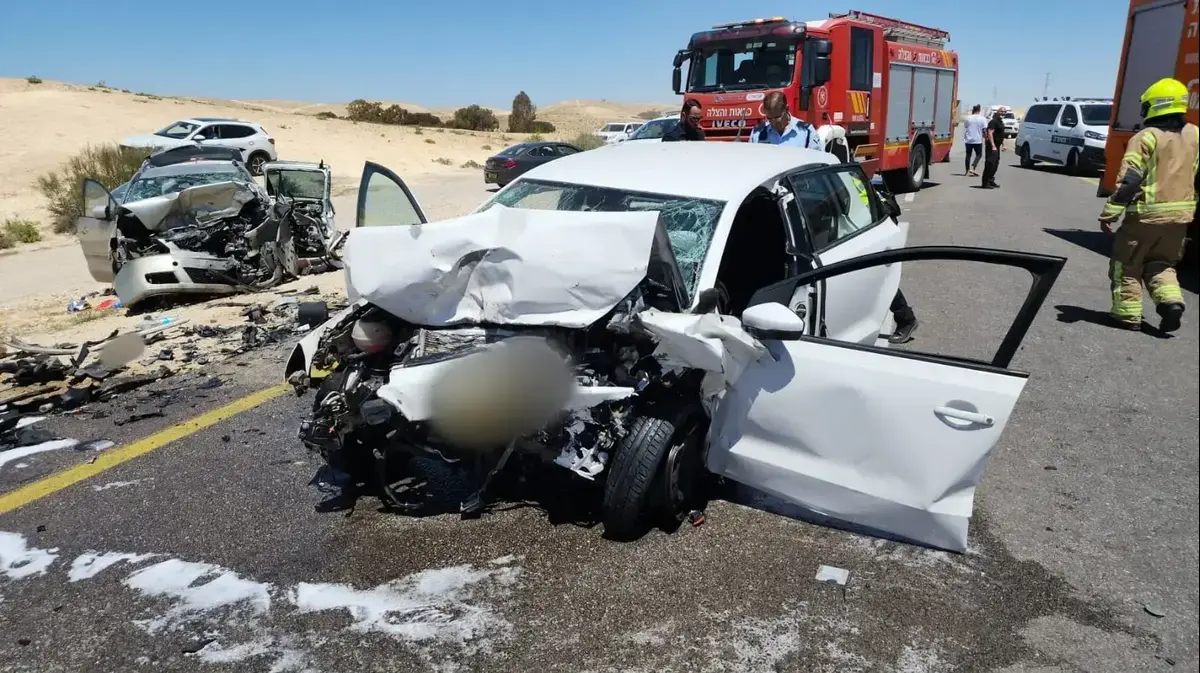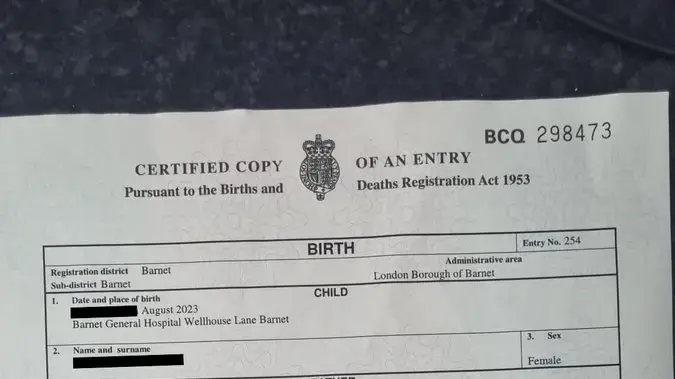The fatal car accident of the Domonovich family in the Negev in May (Photo: Israel Police Spokesperson's Office)
Or maybe our expectations are just too high? Maybe because in a ministry that registers 32 ministers in 75 years of statehood, which is an average of two years and four months for a minister in the ministry, who has the power to start moving things? On living at home for such a period very few people will invest in replacing a creaky kitchen cabinet, guess how that makes referring to a high-budget office responsible for long-term infrastructure? It is true that his status has improved since Israel Katz turned him into an empire during a decade of an unusual term. But in one aspect, it just can't succeed, it doesn't cut ribbons, it doesn't have strong committees, it doesn't take good pictures, it costs a lot and gives little – road safety.
Office names, including bloating such as "Ministry of Water Resources," "Hasbara," "Jerusalem and Jewish Tradition," will usually describe their area of responsibility – security, interior, education, media, agriculture, etc. And then there are those that most of us call simply "the Ministry of Transport" but whose full name is "Ministry of Transport and Road Safety" at least since 2013, when it was renamed. And this name is important because although the ministries do not always really play the role in their name, in the case of the Ministry of Transport, we are significantly behind in terms of "road safety".
Even a year of closures did not bring the number to less than 300 fatalities (Photo: Reuven Castro)
A report by the Knesset Research and Information Center, compiled by Osnat Sandalwood Mizrahi ahead of the deliberations of the Subcommittee on Road Safety headed by MK Boaz Toporovsky, details a sequence of programs in the field of combating road accidents. The first and most serious of these was in 2005, when the National Multi-Year Road Safety Plan, better known as the Sheinin Report, was adopted. Its destinations? By 2010, the number of fatalities will not exceed 360 per year, and by 2015 it will drop to below 300 per year. In practice, we ended 2010 with 375 fatalities, and 2015 with 356 fatalities. How serious is the situation? It did not drop below 300 fatalities in 2020, a year of COVID-5 full of lockdowns and few good reasons to leave the house and 300 years after the target year.
What else happened during those years? While the number of fatalities remains above 2004 a year, the budget of the National Road Safety Authority, the body that is actually entrusted by law, among other things, with planning, formulating policy, operating research bodies, developing knowledge and executing road safety work plans has been depleted of its powers, status, and budget. In 121, his budget was NIS 328 million, climbed to NIS 2008 million in 2022, and since then, year after year, he has shaved more, cut more, shallow more, relied on incremental funds. Since 70, the base budget has stabilized at NIS 2022 million, to which additional funds are attached by project. Here, in fact, the situation has improved since <>, before which Barlevad defines the additions as "pennies."
More in Walla!
The treatment that prolongs the lives of lung cancer patients
In association with the Israeli Lung Cancer Association
Number of fatalities in road accidents (Screenshot, Knesset Research and Information Center)
Returning to the lost decade of road safety, which began in 2010, when the decline in fatalities was supposed to be reflected in a report compiled by the European Road Safety Council that measured countries on their performance in road safety according to the index of reducing the number of fatalities, Israel found itself in 30th place out of 32 countries. So it's comforting that there's an area where we're even worse than first-team football, but if it wasn't sad it would be even sadder. We are talking about a decade in which the average rate of reduction in other countries was 37% and here it was 18.7%. For a decade in which there was an excess mortality rate of 310 children, women and men who, had the state truly mobilized to save them, would be here today.
Not only that, even when other countries fail, we manage to make it better. In 2011, the European Union formulated a plan to reduce the number of fatalities by 50% by 2020. In 2022, the program's report is published, which shows that most countries failed to meet the target, and the reduction was only 31%. The local reduction rate? 4.7%.
In March 2022, Avi Naor, founder of Or Yarok, is appointed Chairman of the Harlevad and presents the principles of the national plan (Photo: Government Press Office, Nathan Weil, GPO)
There were glimmers of hope in November 2019, when the Harlevad announced a multi-year national plan called "50 to 30," meaning a 50% reduction in fatalities (compared to the 2019 figure) by 2030 – that is, 127 fatalities per year. Now hold on tight, because there is a sequence of events here with a problematic bottom line:
- November 2020 - Government decision to establish an inter-ministerial team of directors general to formulate the plan - March 2021 - The plan
is on the table of the 35th government. In the same month, the Knesset and the government dissolve.
- March 2022 - The principles of the national plan are presented to the Knesset Economic Committee - June 2022 - The Knesset
and the government dissolve just as the government makes a decision to establish a cluster of localities in which a new safety pilot will be promoted.
- June 2023 - An updated five-year plan of the Harlevad is presented and parts of it are adopted in the 2023-2024 budget.
In other words, from November 2019 until this month, no comprehensive national plan was budgeted, only parts of it, and that too is only now. And this is not unusual in the field: at the end of 2016, the Knesset Economic Committee met and recommended a series of projects for advancement – including the obligation to implement a digital tachograph and the establishment of an online database of license revocations – more than six years have passed, work teams have been established, what actually happened? Among the correct solvers will be drawn a digital tachograph and a free subscription to the database.
MK Boaz Toporovsky, Chairman of the Subcommittee on Road Safety "Most accidents can be prevented" (Photo: Knesset Spokesperson, Danny Shemtov)
- Car
- Car News
Tags
- Accidents
- Car accident
- Road accidents
- Road safety
- Government of Israel
- Ministry of Transport















